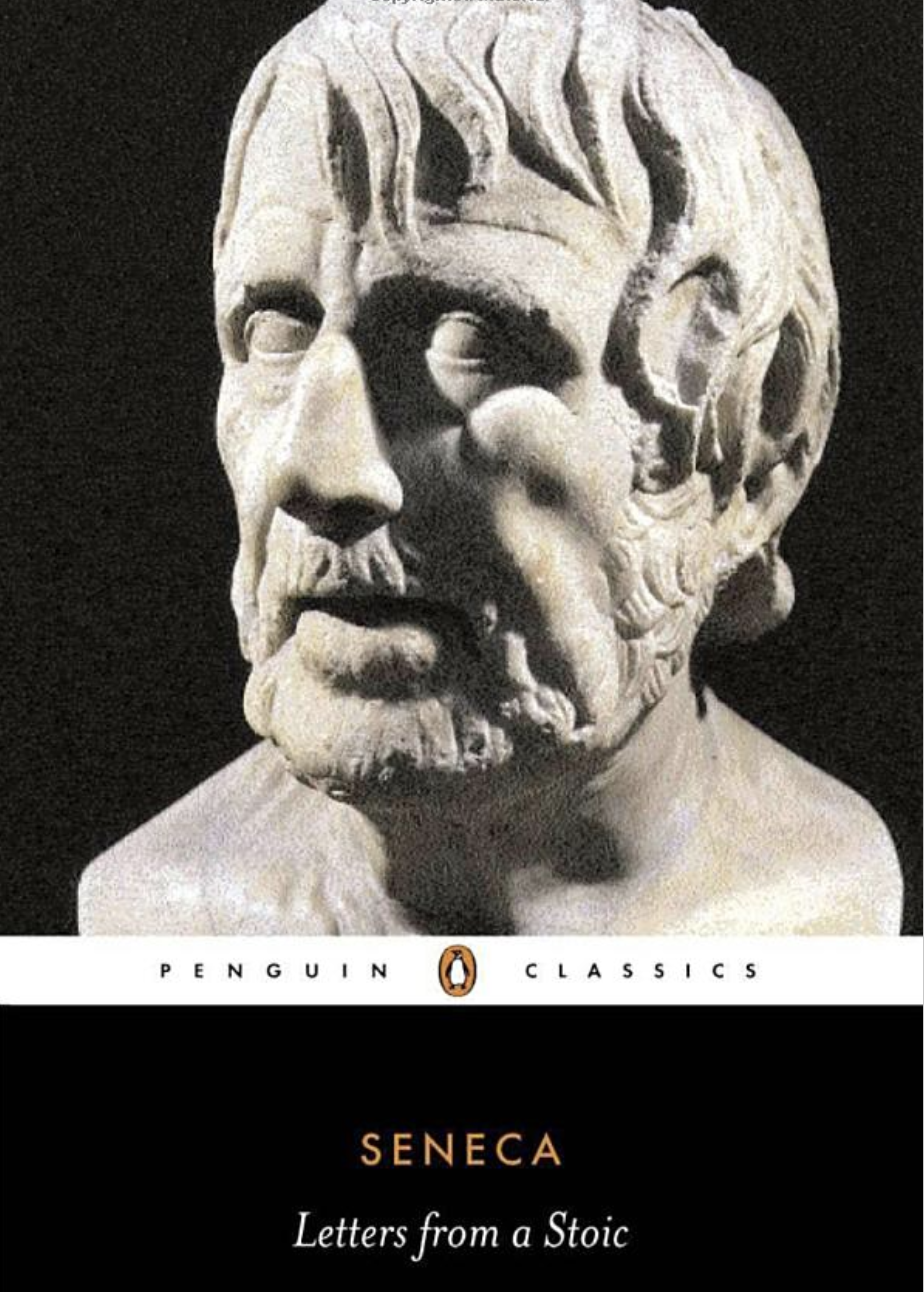Wisdom From Seneca’s Letters — Part 1

Seneca wrote many letters to Lucilius, teaching him how to be a stoic. These letters are known as the “Letters from a Stoic”, and can be found in a book of the same name. Below are some of my highlights from the book (this is the first part of my notes):
- Wealth: the wise man’s servant and the fool’s master.
- Universal applause is at least two thirds of a Scandal.
- Nothing, to my way of thinking, is a better proof of a well ordered mind than a man’s ability to stop just where he is and pass some time in his own company.
- To be everywhere is to be nowhere.
- People who spend their whole life traveling abroad end up with having plenty of places where they can find hospitality but no real friendships.
- Nothing hinders a cure so much as frequent changes of treatment.
- A wound will not heal over if it is being made the subject of experiments with different ointments.
- A plant which is frequently moved never grows strong.
- A multitude of books only gets in one’s way.
- Always read well-tried authors, and if at any moment you find yourself wanting a change from a particular author, go back to ones you have read before.
- You ask what is the proper limit to a person’s wealth? First, having what is essential, and second, having what is enough.
- Certain matters do arise on which convention decrees silence.
- Refrain from following the example of those whose craving is for attention, not their own improvement, by doing certain things which are calculated to give rise to comment on your appearance or way of living generally.
- The standard which I accept is this: one’s life should be a compromise between the ideal and the popular morality.
- You ask me to say what you should consider it particularly important to avoid. My answer is this: a mass crowd. …… And inevitably enough, the larger the size of the crowd we mingle with, the greater the danger.
- Gifts which chance brings our way are not to be regarded as possessions.
- What fortune has made yours is not your own.
- If you wish to be loved, love.
- The wise man lacked nothing but needed a great number of things, whereas the fool, on the other hand, needs nothing but lacks everything.
- For lacking something implies that it is a necessity and nothing, to the wise man, is a necessity.
- The supreme ideal does not call for any external aids. It is home-grown, wholly self-developed. Once it starts looking outside itself for any part of itself it is on the way to being dominated by fortune.
- … not regarding as valuable anything that is capable of being taken away.
- A man is unhappy, though he reign the world over, if he does not consider himself happy.
- I know that no one can lead a happy life, or even one that is bearable, without the pursuit of wisdom, and that the perfection of wisdom is what makes the happy life, although even the beginnings of wisdom make life bearable.
- … making noble resolutions is not as important as keeping the resolutions you have made already.
- Philosophy is not an occupation of a popular nature, nor is it pursued for the sake of self-advertisement. Its concern is not with words, but with facts. It is not carried on with the object of passing the day in an entertaining sort of way and taking the boredom out of leisure. It moulds and builds the personality, orders one’s life, regulates one’s conduct, shows one what one should do and what one should leave undone, sits at the helm and keeps one on the correct course as one is tossed about in perilous seas. Without it no one can lead a life free of fear or worry. Every hour of the day countless situations arise that call for advice, and for that advice we have to look to philosophy.
- If you shape your life according to nature, you will never be poor; if according to people’s opinions, you will never be rich. Nature’s wants are small, while those of opinion are limitless.
